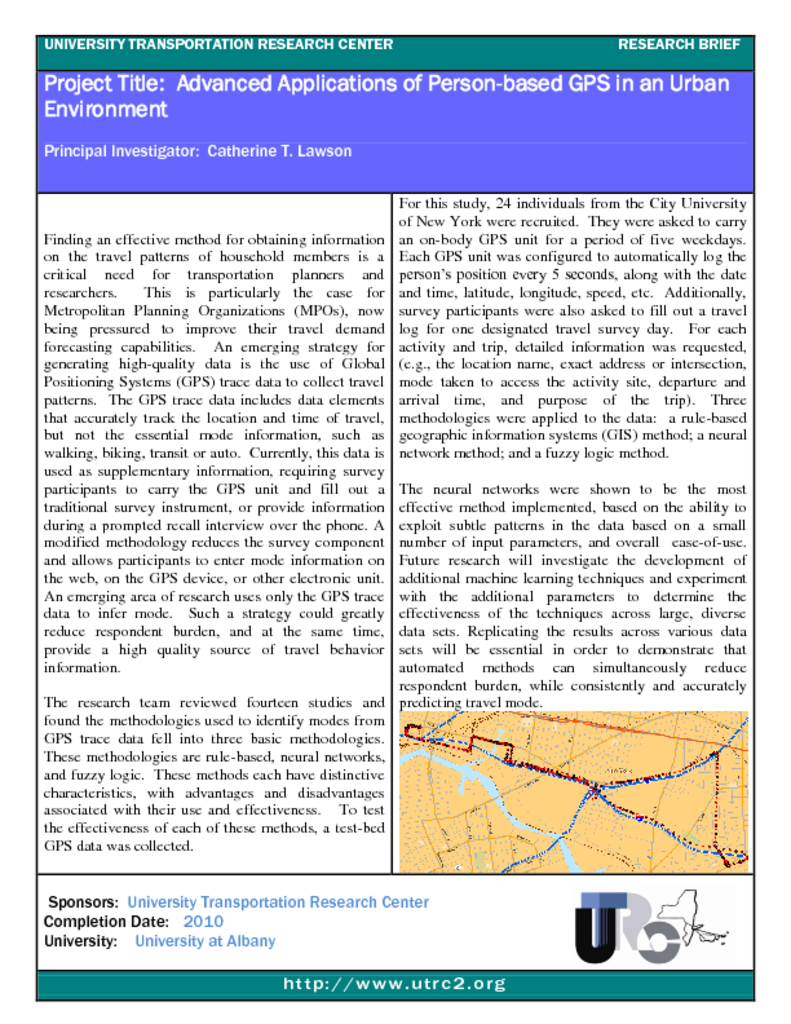Finding an effective method for obtaining information on the travel patterns of household members is a critical need for transportation planners and researchers. This is particularly the case for Metropolitan Planning Organizations (MPOs), now being pressured to improve their travel demand forecasting capabilities. An emerging strategy for generating high-quality data is the use of Global Positioning Systems (GPS) trace data to collect travel patterns. The GPS trace data includes data elements that accurately track the location and time of travel, but not the essential mode information, such as walking, biking, transit or auto. Currently, this data is used as supplementary information, requiring survey participants to carry the GPS unit and fill out a traditional survey instrument, or provide information during a prompted recall interview over the phone. A modified methodology reduces the survey component and allows participants to enter mode information on the web, on the GPS device, or other electronic unit. An emerging area of research uses only the GPS trace data to infer mode. Such a strategy could greatly reduce respondent burden, and at the same time, provide a high quality source of travel behavior information.




